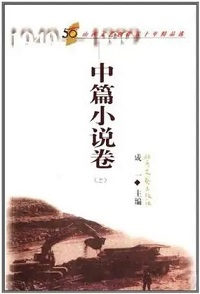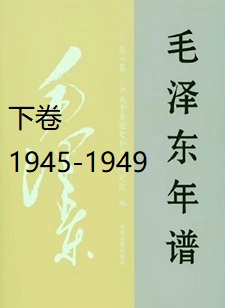The battery was unmasked at the same moment with the ravine.
Sixty cannons and the thirteen squares darted lightning point-blank on the cuirassiers. The intrepid General Delort made the military salute to the English battery.
The whole of the flying artillery of the English had re-entered the squares at a gallop. The cuirassiers had not had even the time for a halt. The disaster of the hollow road had decimated, but not discouraged them. They belonged to that class of men who, when diminished in number, increase in courage.
Wathier's column alone had suffered in the disaster; Delort's column, which Ney had deflected to the left, as though he had a presentiment of an ambush, had arrived whole.
The cuirassiers hurled themselves on the English squares.
At full speed, with bridles loose, swords in their teeth pistols in fist,--such was the attack.
There are moments in battles in which the soul hardens the man until the soldier is changed into a statue, and when all this flesh turns into granite. The English battalions, desperately assaulted, did not stir.
Then it was terrible.
All the faces of the English squares were attacked at once. A frenzied whirl enveloped them. That cold infantry remained impassive. The first rank knelt and received the cuirassiers on their bayonets, the second ranks shot them down; behind the second rank the cannoneers charged their guns, the front of the square parted, permitted the passage of an eruption of grape-shot, and closed again. The cuirassiers replied by crushing them. Their great horses reared, strode across the ranks, leaped over the bayonets and fell, gigantic, in the midst of these four living wells. The cannon-balls ploughed furrows in these cuirassiers; the cuirassiers made breaches in the squares. Files of men disappeared, ground to dust under the horses. The bayonets plunged into the bellies of these centaurs; hence a hideousness of wounds which has probably never been seen anywhere else. The squares, wasted by this mad cavalry, closed up their ranks without flinching. Inexhaustible in the matter of grape-shot, they created explosions in their assailants' midst. The form of this combat was monstrous. These squares were no longer battalions, they were craters; those cuirassiers were no longer cavalry, they were a tempest. Each square was a volcano attacked by a cloud; lava contended with lightning.
The square on the extreme right, the most exposed of all, being in the air, was almost annihilated at the very first shock. lt was formed of the 75th regiment of Highlanders. The bagpipe-player in the centre dropped his melancholy eyes, filled with the reflections of the forests and the lakes, in profound inattention, while men were being exterminated around him, and seated on a drum, with his pibroch under his arm, played the Highland airs. These Scotchmen died thinking of Ben Lothian, as did the Greeks recalling Argos. The sword of a cuirassier, which hewed down the bagpipes and the arm which bore it, put an end to the song by killing the singer.
The cuirassiers, relatively few in number, and still further diminished by the catastrophe of the ravine, had almost the whole English army against them, but they multiplied themselves so that each man of them was equal to ten. Nevertheless, some Hanoverian battalions yielded. Wellington perceived it, and thought of his cavalry. Had Napoleon at that same moment thought of his infantry, he would have won the battle. This forgetfulness was his great and fatal mistake.
All at once, the cuirassiers, who had been the assailants, found themselves assailed. The English cavalry was at their back. Before them two squares, behind them Somerset; Somerset meant fourteen hundred dragoons of the guard. On the right, Somerset had Dornberg with the German light-horse, and on his left, Trip with the Belgian carabineers; the cuirassiers attacked on the flank and in front, before and in the rear, by infantry and cavalry, had to face all sides. What mattered it to them? They were a whirlwind. Their valor was something indescribable.
In addition to this, they had behind them the battery, which was still thundering. It was necessary that it should be so, or they could never have been wounded in the back. One of their cuirasses, pierced on the shoulder by a ball from a biscayan,[9] is in the collection of the Waterloo Museum.
[9] A heavy rifled gun.
For such Frenchmen nothing less than such Englishmen was needed. It was no longer a hand-to-hand conflict; it was a shadow, a fury, a dizzy transport of souls and courage, a hurricane of lightning swords. In an instant the fourteen hundred dragoon guards numbered only eight hundred. Fuller, their lieutenant-colonel, fell dead. Ney rushed up with the lancers and Lefebvre-Desnouettes's light-horse. The plateau of Mont-Saint-Jean was captured, recaptured, captured again. The cuirassiers quitted the cavalry to return to the infantry; or, to put it more exactly, the whole of that formidable rout collared each other without releasing the other. The squares still held firm.
There were a dozen assaults. Ney had four horses killed under him. Half the cuirassiers remained on the plateau. This conflict lasted two hours.
The English army was profoundly shaken. There is no doubt that, had they not been enfeebled in their first shock by the disaster of the hollow road the cuirassiers would have overwhelmed the centre and decided the victory. This extraordinary cavalry petrified Clinton, who had seen Talavera and Badajoz. Wellington, three-quarters vanquished, admired heroically. He said in an undertone, "Sublime!"
The cuirassiers annihilated seven squares out of thirteen, took or spiked sixty pieces of ordnance, and captured from the English regiments six flags, which three cuirassiers and three chasseurs of the Guard bore to the Emperor, in front of the farm of La Belle Alliance.
Wellington's situation had grown worse. This strange battle was like a duel between two raging, wounded men, each of whom, still fighting and still resisting, is expending all his blood.
Which of the two will be the first to fall?
The conflict on the plateau continued.
What had become of the cuirassiers? No one could have told. One thing is certain, that on the day after the battle, a cuirassier and his horse were found dead among the woodwork of the scales for vehicles at Mont-Saint-Jean, at the very point where the four roads from Nivelles, Genappe, La Hulpe, and Brussels meet and intersect each other. This horseman had pierced the English lines. One of the men who picked up the body still lives at Mont-Saint-Jean. His name is Dehaze. He was eighteen years old at that time.
Wellington felt that he was yielding. The crisis was at hand.
The cuirassiers had not succeeded, since the centre was not broken through. As every one was in possession of the plateau, no one held it, and in fact it remained, to a great extent, with the English. Wellington held the village and the culminating plain; Ney had only the crest and the slope. They seemed rooted in that fatal soil on both sides.
But the weakening of the English seemed irremediable. The bleeding of that army was horrible. Kempt, on the left wing, demanded reinforcements. "There are none," replied Wellington; "he must let himself be killed!" Almost at that same moment, a singular coincidence which paints the exhaustion of the two armies, Ney demanded infantry from Napoleon, and Napoleon exclaimed, "Infantry! Where does he expect me to get it? Does he think I can make it?"
Nevertheless, the English army was in the worse case of the two. The furious onsets of those great squadrons with cuirasses of iron and breasts of steel had ground the infantry to nothing. A few men clustered round a flag marked the post of a regiment; such and such a battalion was commanded only by a captain or a lieutenant; Alten's division, already so roughly handled at La Haie-Sainte, was almost destroyed; the intrepid Belgians of Van Kluze's brigade strewed the rye-fields all along the Nivelles road; hardly anything was left of those Dutch grenadiers, who, intermingled with Spaniards in our ranks in 1811, fought against Wellington; and who, in 1815, rallied to the English standard, fought against Napoleon. The loss in officers was considerable. Lord Uxbridge, who had his leg buried on the following day, had his knee shattered. If, on the French side, in that tussle of the cuirassiers, Delort, l'Heritier, Colbert, Dnop, Travers, and Blancard were disabled, on the side of the English there was Alten wounded, Barne wounded, Delancey killed, Van Meeren killed, Ompteda killed, the whole of Wellington's staff decimated, and England had the worse of it in that bloody scale. The second regiment of foot-guards had lost five lieutenant-colonels, four captains, and three ensigns; the first battalion of the 30th infantry had lost 24 officers and 1,200 soldiers; the 79th Highlanders had lost 24 officers wounded, 18 officers killed, 450 soldiers killed. The Hanoverian hussars of Cumberland, a whole regiment, with Colonel Hacke at its head, who was destined to be tried later on and cashiered, had turned bridle in the presence of the fray, and had fled to the forest of Soignes, sowing defeat all the way to Brussels. The transports, ammunition-wagons, the baggage-wagons, the wagons filled with wounded, on perceiving that the French were gaining ground and approaching the forest, rushed headlong thither. The Dutch, mowed down by the French cavalry, cried, "Alarm!" From Vert-Coucou to Groentendael, for a distance of nearly two leagues in the direction of Brussels, according to the testimony of eye-witnesses who are still alive, the roads were encumbered with fugitives. This panic was such that it attacked the Prince de Conde at Mechlin, and Louis XVIII. at Ghent. With the exception of the feeble reserve echelonned behind the ambulance established at the farm of Mont-Saint-Jean, and of Vivian's and Vandeleur's brigades, which flanked the left wing, Wellington had no cavalry left. A number of batteries lay unhorsed. These facts are attested by Siborne; and Pringle, exaggerating the disaster, goes so far as to say that the Anglo-Dutch army was reduced to thirty-four thousand men. The Iron Duke remained calm, but his lips blanched. Vincent, the Austrian commissioner, Alava, the Spanish commissioner, who were present at the battle in the English staff, thought the Duke lost. At five o'clock Wellington drew out his watch, and he was heard to murmur these sinister words, "Blucher, or night!"
It was at about that moment that a distant line of bayonets gleamed on the heights in the direction of Frischemont.
Here comes the change of face in this giant drama.
深沟的惨祸未了,埋伏着的炮队已经露面了。
六十尊大炮和十三个方阵同时向着铁骑军劈面射来。无畏将军德洛尔立即向英国炮队还礼。
英国的轻炮队全数急驰回到方阵中间。铁骑军一下也没有停。那条凹路的灾害损伤了他们的元气,却不会伤及他们的勇气。那些人都是因为力寡势孤反而勇气百倍的。
只有瓦蒂埃纵队遭了那凹路的殃,德洛尔纵队,却全部到达目的地,因为内伊指示过,教他从左面斜进,他仿佛预先嗅到了陷阱似的。
铁骑军蹴踏着英军的方阵。
腹朝黄土,放开缰勒,牙咬着刀,手捏着枪,那就是当日冲杀的情形。
有时,在战争中,心情会使人变得僵硬,以致士兵成了塑像,肉身变成青石。英国的各营士兵都被那种攻势吓慌了,呆着不能动。
当时的情形确是触目惊心。
英军方阵的每一面都同时受到冲击。铁骑军狂暴地旋转着,把他们包在中间。那些步兵沉着应战,毫不动摇。第一行,一只脚跪在地上,用枪刺迎接铁骑;第二行开枪射击;第二行后面,炮兵上着炮弹,方阵的前方让开,让开花弹放过,又随即合拢。铁骑军报以蹴踏。他们的壮马立在两只后蹄上,跨过行列,从枪刺尖上跳过去,巍然落在那四堵人墙中间。炮弹在铁骑队伍中打出了一些空洞,铁骑也在方阵中冲开了一些缺口。一行行被马蹄踏烂了的人,倒在地上不见了。枪刺也插进了那些神骑的胸腹。人们在旁的地方,也许不曾见过那种光怪陆离的伤亡情况。方阵被那种狂暴的骑兵侵蚀以后,便缩小范围,继续应战。他们把射不尽的开花弹在敌人的队伍中爆炸开来。那种战争的形象确是残暴极了。那些方阵已不是队伍,而是一些火山口。铁骑军也不是马队,而是一阵阵的暴风。每一个方阵都是一座受着乌云侵袭的火山,熔岩在和雷霆交战。
极右的那个方阵,暴露在外面,是最没有掩护的一个,几乎一经接触便全部被消灭了。它是苏格兰第七十五联队组成的。那个吹风笛的士兵坐在方阵中央的一面军鼓上,气囊挟在腋下,无忧无虑地垂着他那双满映着树影湖光的愁郁的眼睛,正当别人在他前后左右厮杀时,他还吹奏着山地民歌。那些苏格兰士兵,在临死时还想念着班乐乡,正如希腊人回忆阿戈斯①一样,一个铁甲骑兵把那气囊和抱着它的那条胳膊同时一刀砍下,歌曲也就随着歌手停止了。
①阿戈斯(Argos),希腊城名。
铁骑军的人数比较少,那凹路上的灾难把他们削弱了,而在那里和他们对抗的,几乎是英国的全部军队,但是他们以一当十,人数就大增。那时,几营汉诺威军队向后折回了。威灵顿见了,想到了他的骑兵。假使拿破仑那时也想到了他的步兵,他也许就打了个胜仗,那一点忽略是他一种无可弥补的大错。
那些攻人的铁骑军突然觉得自己被攻了。英国的骑兵已在他们的背后。他们前有方阵,后有萨默塞特,萨默塞特便是那一千四百名龙骑卫队。萨默塞特右有德恩贝格的德国轻骑兵,左有特利伯的比利时火枪队;铁骑军的头部和腰部,前方和后方,都受着骑兵和步兵的袭击,他们得四面应战。这对他们有什么关系?他们是旋风。那种勇气是无法形容的。
此外,炮兵始终在他们的背后轰击。不那样,就不能伤他们的背。他们的一副铁甲,在左肩胛骨上有一个枪弹孔,现在还陈列在所谓滑铁卢陈列馆里。
有了那样的法国人,也就必须有那样的英国人。
那已不是混战,而是一阵黑旋风,一种狂怒,是灵魂和勇气的一种触目惊心的奋厉,是一阵剑光与闪电交驰的风暴。一刹那间,那一千四百名龙骑卫队只剩下八百了,他们的大佐弗来也落马而死。内伊领着勒费弗尔-戴努埃特的长矛兵和狙击队赶来。圣约翰山高地被占领,再被占领,又被占领了。铁骑军丢开骑兵,回头再去攻步兵,或者,说得正确一些,那一群乱人乱马,已经扭作一团,谁也不肯放手。那些方阵始终不动。先后冲击过十二次。内伊的坐骑连死四匹。铁骑军的半数死在高地上。那种搏斗延续了两个钟头。
英军深受震动。大家都知道,假使铁骑军最初不曾遭受那凹路的损伤,他们早已突破了英军的中部,而胜利在握了。见过塔拉韦腊①和巴达霍斯②战役的克林东望见这种稀有的骑兵也不免瞠目结舌,呆如石人。十有七成败定了的威灵顿也不失英雄本色,加以赞叹。他低声说着:“出色!”③
①塔拉韦腊(Talavera),一八○九年威灵顿战胜法军于此。
②巴达霍斯(Badajoz),西班牙城名,一八一一年被法军攻占。
③原字是英文(splendide)。棗原注。
铁骑军歼灭了十三个方阵中的七个,夺取或钉塞了六十尊大炮,并且获得英军联队的六面军旗,由羽林军的三个铁骑兵和三个狙击兵送到佳盟庄上,献给了皇帝。
威灵顿的地位更加不利了。那种奇怪的战争就象两个负伤恶斗的人的肉搏,双方的血都已流尽,但是彼此都不放手,仍继续搏斗。看两个人中究竟谁先倒下?
高地的争夺战继续进行。
那些铁骑军究竟到达过什么地方?谁也不知道。但有一点是确实的,就是在战争的翌日,在尼维尔、热纳普、拉羽泊和布鲁塞尔四条大路的交叉处,有人发现了一个铁骑兵,连人带马,一同死在一个称那些进入圣约翰山的车子的天秤架子里。那个骑士穿过了英军的防线。抬过他尸体的那些人中,现在还有一个住在圣约翰山,他的名字叫德阿茨。当时他十八岁。
威灵顿觉得自己渐渐支持不住了。这是生死关头。
铁骑军丝毫没有成功,因为他们并没有突破中部防线。双方都占住了那高地,也就等于双方都没有占住,并且大部分还在英军手里。威灵顿有那村子和那片最高的平地,内伊只得了山脊和山坡。双方都好象在那片伤心惨目的土地上扎下了根。
但是英军的困惫看来是无可救药的。他们流血的程度真是可怕。左翼的兰伯特请援。威灵顿回答:“无援可增,牺牲吧!”几乎同时棗这种不约而同的怪事正可说明两军都已精疲力尽棗内伊也向拿破仑请求步兵,拿破仑喊着说:“步兵!
他要我到哪里去找步兵?他要我临时变出来吗?”
但是英军是病得最厉害的。那些钢胸铁甲的大队人马的猛突已把他们的步兵踏成了肉醢。寥寥几个人围着一面旗,就标志着一个联队的防地,某些营的官长只剩了一个上尉或是一个中尉;已经在圣拉埃大受损伤的阿尔顿师几乎死绝,范·克吕茨的一旅比利时勇士已经伏尸在尼维尔路一带的稞麦田中;在一八一一年混在我们队伍中到西班牙去攻打威灵顿,又在一八一五年联合英军来攻打拿破仑的那些荷兰近卫军,几乎没剩下什么人。军官的伤亡也是突出的。翌日亲自埋腿的那位贵人阿克斯布里吉当时已经炸裂膝盖。从法国方面说,在那次铁骑军战斗的过程中,德洛尔、雷力杰、柯尔培尔、德诺普、特拉维尔和布朗卡都已负伤退阵,在英国方面,阿尔顿受了伤,巴恩受了伤,德朗塞阵亡,范·梅朗阵亡,昂普特达阵亡,威灵顿的作战指挥部全完了,在那种两败俱伤的局面中,英国的损失更为严重。护卫步兵第二联队丢了五个中校、四个上尉和三个守旗官,步兵第三十联队第一营丢了二十四个官长和一百十二个士兵,第七十九山地联队有二十四个官长受伤,十八个官长丧命,四百五十个士兵阵亡。坎伯兰部下的汉诺威骑兵有个联队,在哈克上校率领下,竟在酣战中掉转辔头,全部逃进了索瓦宁森林,以致布鲁塞尔的人心也动摇起来,过后他受到审判,免去军职。他们看见法军节节前进,逼近森林,便连忙把辎重、车辆、行李、满载伤兵的篷车运进森林。被法国骑兵杀惨了的荷兰兵都叫“倒霉”。据当日亲眼见过今天还活着的人说,当日从绿班鸠到格昂达尔的那条通到布鲁塞尔几乎长达两法里的大路上,满是逃兵。当时恐怖万状,以致在马林①的孔代亲王和在根特的路易十八都提心吊胆。除了驻在圣约翰山庄屋战地医院后面的那一小撮后备骑兵和掩护左翼的维维安和范德勒尔两旅的一小部分骑兵外,威灵顿已没有骑兵了。许多大炮的残骸倒在地上。这些事实都是西博恩报导的,普林格尔甚至说英荷联军只剩下三万四千人。那位铁公爵②貌似镇静,但嘴唇却发白了。在英军作战指挥部里的奥地利代表万塞纳和西班牙代表阿拉瓦都认为那位公爵玩完了。五点钟时威灵顿取出他的表,说了这样一句忧心如焚的话:“布吕歇尔不来就完了!”
①马林(Malines),比利时产精致花边的城市。
②铁公爵,威灵顿的外号。
正在那前后,在弗里谢蒙方面的高丘上,远远地出现了一线明晃晃的枪刺。
从此这场恶战起了剧变。





